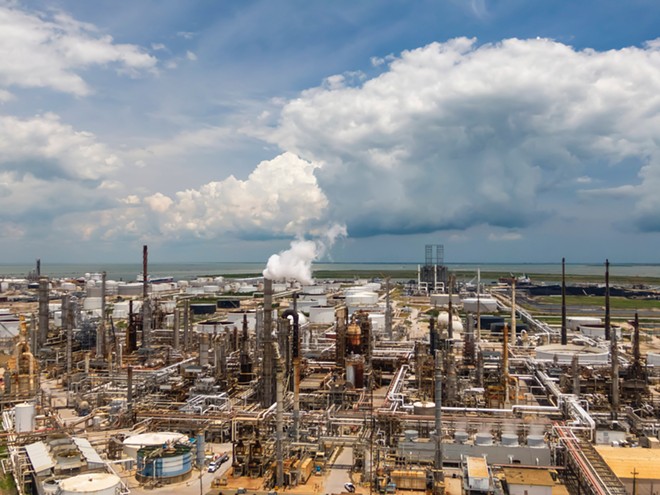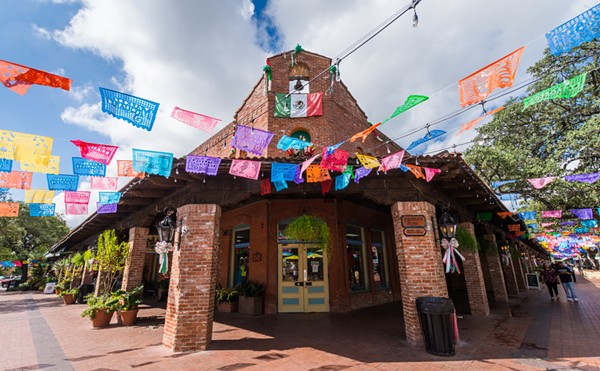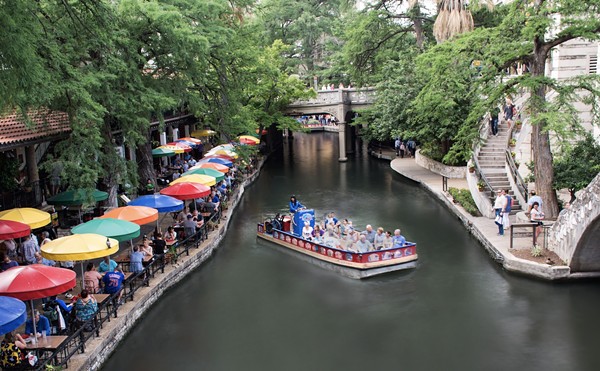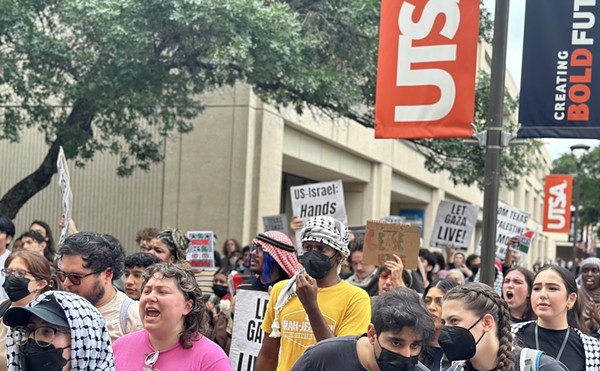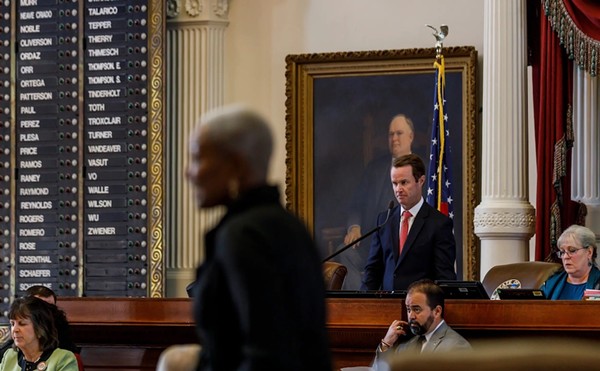Editor's Note: Bad Takes is a column of opinion and analysis.
It feels like I've lobbed enough fair criticism at comedian Bill Maher, who's scheduled to perform at the Majestic Theatre in October, over his penchant for reckless COVID-19 misinformation. Perhaps that justifies cutting the old man some slack and trumpeting a point of agreement. "Maybe the No. 1 lesson from the pandemic was the need for proper air ventilation," Maher said on his HBO show Real Time back in March. "But if there's been a big national movement to retrofit buildings, I missed it."
He's right. Every single classroom, office space, retail store and factory floor in the United States should clean the air we breathe with High Efficiency Particulate Air (HEPA)-grade filtration systems. We should welcome the day when they're as ubiquitous a feature in modern homes as refrigerators and water heaters.
Though the Biden-Harris administration recently announced $32 million in grants to tackle air pollution in schools, that's a drop in the bucket next to what's needed. Yet we've known for decades that poor indoor air quality, including higher levels of carbon dioxide, results in a diminished ability to concentrate.
My favorite such study was from Germany in 2019. In that case, researchers found 10 micrograms per cubic meter of PM2.5 — particles less than 2.5 micrometers in diameter — increased the odds a chess player would make a bad move by 26%. Is it any wonder that substandard ventilation lowers math test scores and makes students more distracted and irritable, according to peer-reviewed studies?
And who isn't in favor of fewer respiratory illnesses, asthma attacks, sick days and allergies? As with other shared environmental concerns, the U.S. should set a global example. According to the World Health Organization, indoor air pollution accounts for approximately 4.3 million premature deaths annually — a quiet pandemic for which there are no vigils.
Most of us spend 90% of our lives indoors, but sometimes stepping outside for fresh air isn't much healthier. On April 9, the Environmental Protection Agency (EPA) cracked down on six hazardous chemicals emitted from 80 Texas plants, mostly along the Gulf Coast, which are used to make plastics and pesticides. The chemicals are also known to cause cancer as well as immune-system and neurological injuries.
"According to the EPA, the new rule will slash more than 6,000 tons of toxic air pollutants annually," Alejandra Martinez reported for the Texas Tribune.
That raises the obvious question: why the feck are we just now doing this?
Wildfires also take a toll on our lungs.
"State lawmakers and agriculture officials are still assessing the full extent of the damage caused by the record-setting wildfires that ravaged the Texas Panhandle in late February, including the Smokehouse Creek fire, the largest in state history," according to KERA reporter Julián Aguilar.
Already the average wildfire season is months longer than a few decades ago, a trend expected to continue given the drier conditions created by climate change, according to scientists.
In an April 10 report, the nonprofit Center for Houston's Future concluded in a study based on interviews with experts and dozens of studies that "a multitude of health threats," including heatstroke, cardiovascular maladies, contaminated water, mosquito-borne illnesses, ozone and even disruption to food supply are worsened by climate change.
Rising temperatures are as much a city problem as a rural one. Thanks to the urban heat island effect, the National Oceanic and Atmospheric Administration and Dallas' Office of Environmental Quality and Sustainability mapped out tree-sparse neighborhoods covered in concrete where the temperature felt a full 10 degrees hotter than what the thermometer read. That's proven deadly on the 109-degree days that hit Texas last summer.
San Antonio-based environmental blog Deceleration News drew up similar maps for our neck of the woods in 2022 and last week via Instagram took mayoral candidate Manny Pelaez to task for having "undermined climate action in San Antonio for six years" as District 8 councilman. Seems that 30% of the most sweltering census tracts fall within his district, including a bastion of working-class rental housing.
However, in an email Deceleration acquired through an open-records request, Pelaez informed the CEO of Valero in 2019 that our city's Climate Action and Adaptation Plan "does not have my support until I hear that Valero, NuStar, Toyota, HEB, Frost, Ancira, et cetera can support it."
Zeroing-out carbon and methane emissions requires international coordination, of course, but if elected representatives whose constituencies are most affected by extreme heat are more concerned with appeasing corporations, we're in trouble. Progressives already helped elect one mayor who backslid on his anti-fossil fuel commitments. Why show up in 2025 for another?
As dire as the warnings of the scientific consensus are, they may have understated the danger.
"We need answers for why 2023 turned out to be the warmest year in possibly the past 100,000 years," climatologist Gavin Schmidt wrote last month in the journal Nature. He acknowledged "the 2023 temperature anomaly ... could imply that a warming planet is already fundamentally altering how the climate system operates, much sooner than scientists had anticipated."
The April 8 eclipse was one of those rare events that unites people across partisan divides and generations, but it also served as a reminder that many of us, behaving like atomized consumers in the perpetual light of our beloved screens, have lost much of any connection to the planet on which we depend.
Earth Day is April 22, and I'm left wondering whether celebrations are in order, or collective mourning.
Subscribe to SA Current newsletters.
Follow us: Apple News | Google News | NewsBreak | Reddit | Instagram | Facebook | Twitter| Or sign up for our RSS Feed

